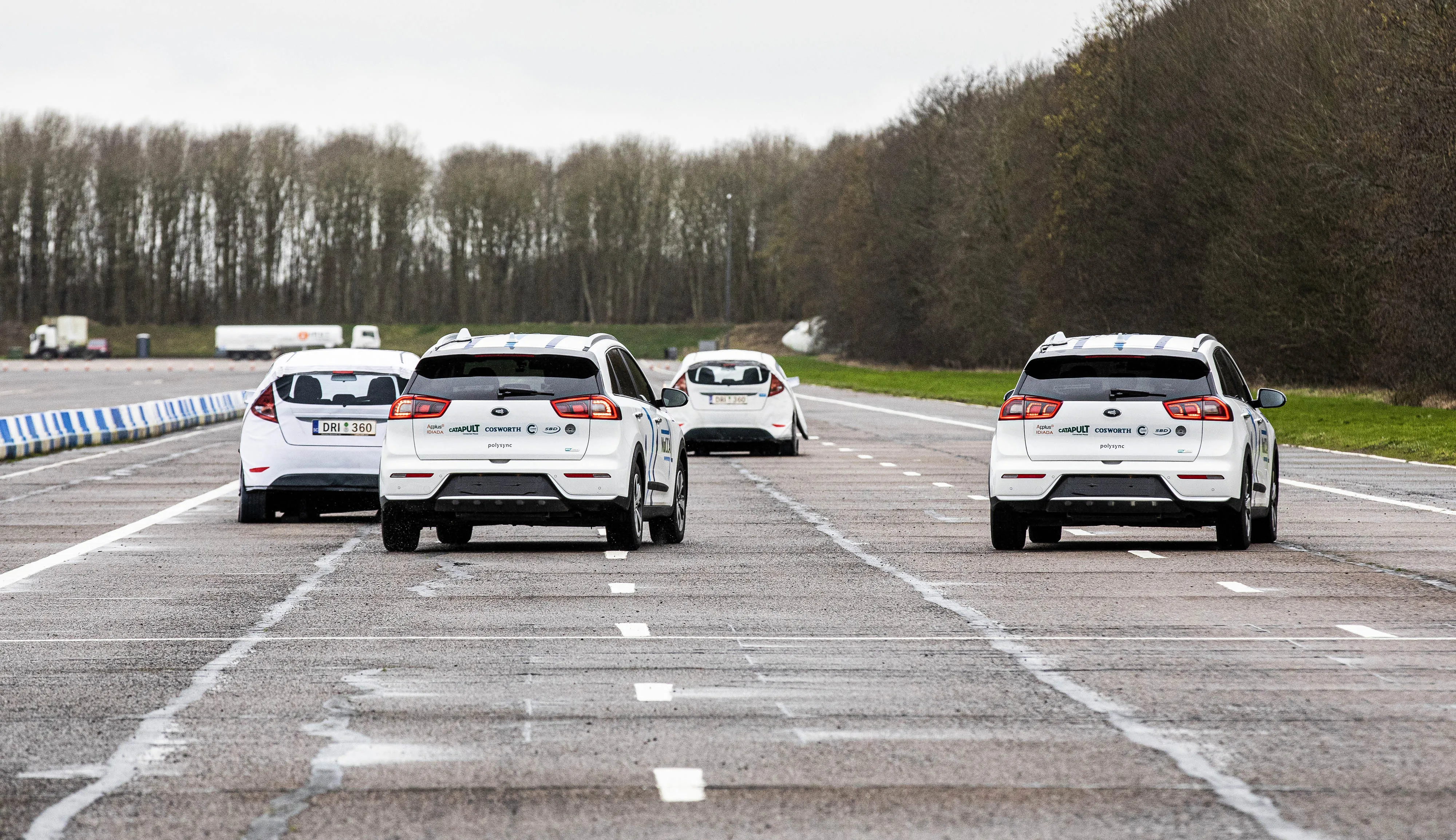
The Multi-Car Avoidance (Mucca) research and development project used artificial intelligence and Vehicle to Vehicle (V2V) communications to instruct autonomous vehicles (AVs) to cooperatively make decisions to avoid potential incidents.
Mucca partners are hoping the technology will reduce the 4,500 accidents each year on UK motorways and the £8 billion associated costs.
Charlie Wartnaby, technical lead for project partner Applus Idiada (Institute for Applied Automotive Research) UK, says collective collision avoidance between the cars was mediated by V2V radio.
“Combining connectivity and automated driving like this has applications beyond the valuable emergency role proven here to more general cooperative vehicle movement, promising enhanced safety and efficiency on our roads in future,” Wartnaby adds.
Catapult says the AVs successfully completed replicas of real-life motorway scenarios on test tracks. Once an incident is detected, the vehicles share information by radio links and on-board computers calculate the best manoeuvres to avoid obstacles and safely steer the agreed path to avoid an accident, the company adds.
Ross Walker and Icaro Bezerra-Viana, research fellows at Cranfield University, were also involved in the project.
Walker explains: “We were able to develop computer algorithms that help the cars to react in a more human-like way when avoiding collisions. This can allow any potential accidents to be recognised in advance, and consequently avoided before they have chance to begin developing.”
Bezerra-Viana adds: “Computer simulations enabled us to model how human drivers behave on motorways, and how the proximity of surrounding cars influences their behaviour. The movement of the cars that surround a vehicle over the next few seconds can then be predicted in order to avoid a collision.”
Other partners involved in the project include Applus Idiada, Westfield Sports Car and SBD Automotive. It was funded by Innovate UK and the Centre for C/AVs.










